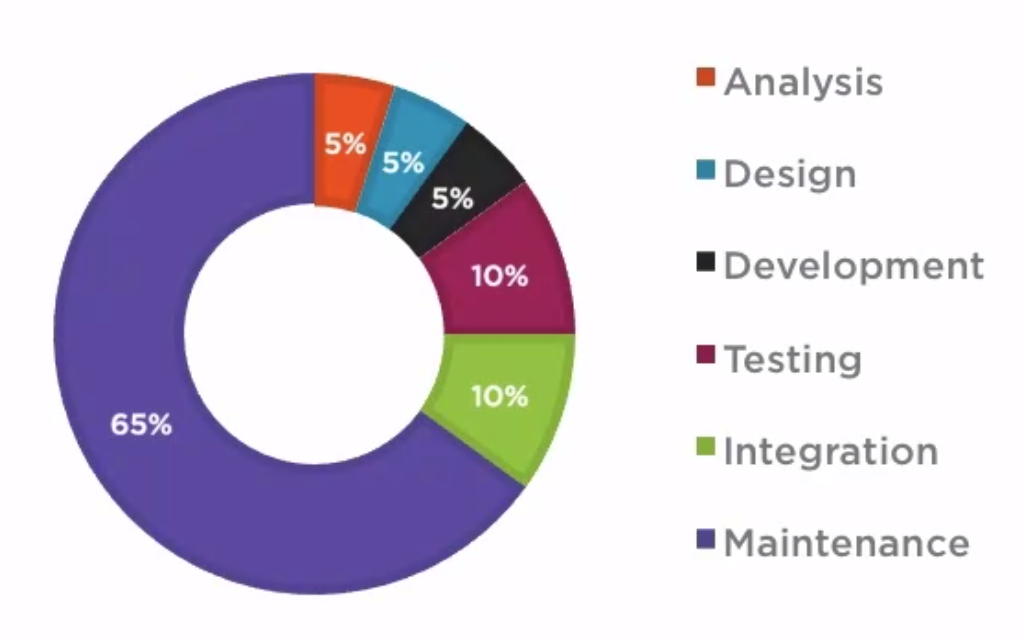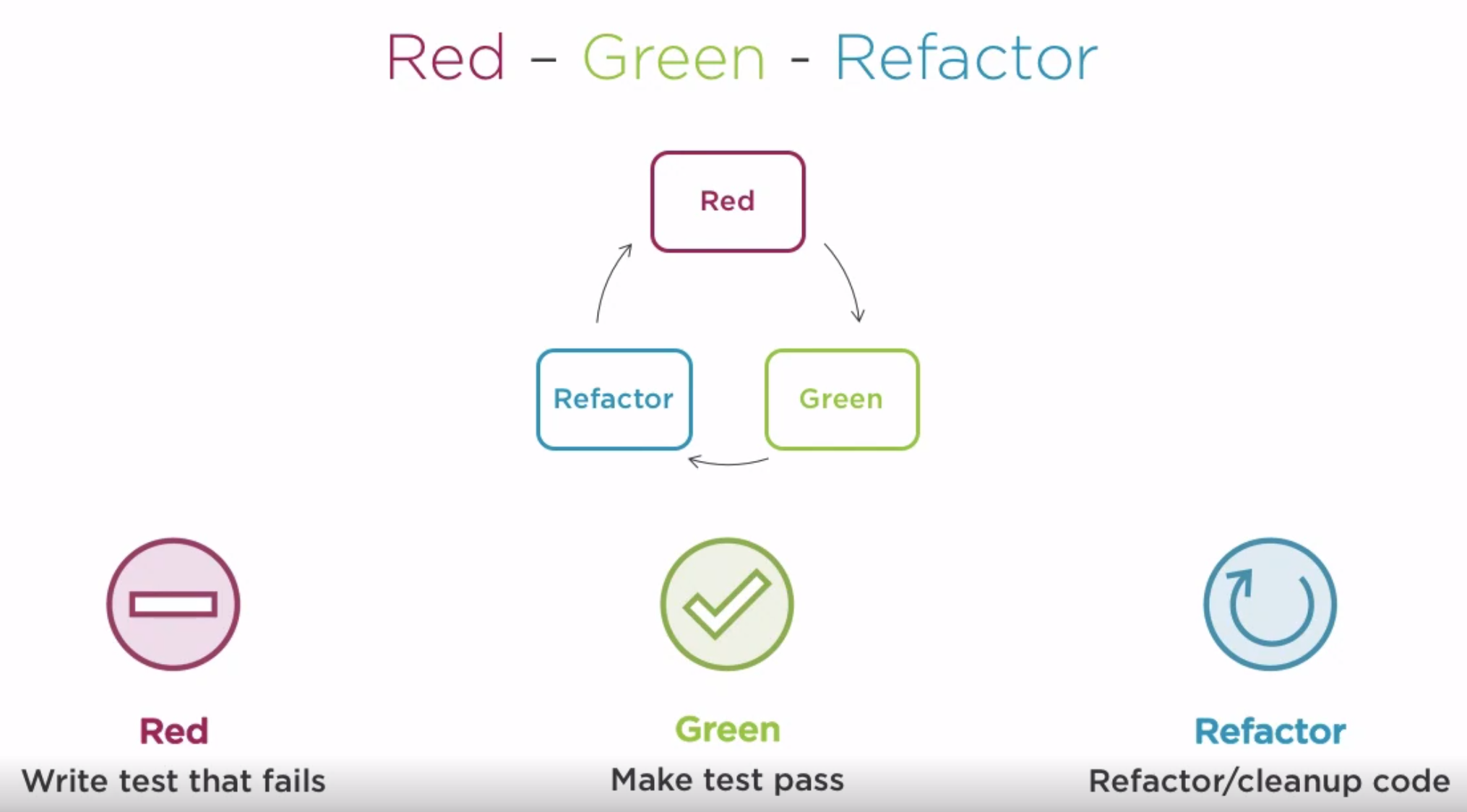Test Driven Development: Difference between revisions
Jump to navigation
Jump to search
| Line 18: | Line 18: | ||
*Reduces over engineering | *Reduces over engineering | ||
*Easy to know where you are in the project | *Easy to know where you are in the project | ||
=Different Types of Testing= | |||
==Types of Testing== | |||
*Unit Testing | |||
*Functional Testing (UI/End-to-End) | |||
*Integrating Testing | |||
*User Acceptance Testing | |||
Testing Approaches | |||
*Black Box testing (testing the interface) | |||
*White Box testing (testing internal aspects) | |||
Revision as of 03:40, 10 December 2020
Introduction
Costs
The cost of software according to this course was
 Tests are split into three categories
Tests are split into three categories
- Does what was asked for
- Responds appropriately to bad input
- Acceptable Performance
Red Green Refactor
Start by writing tests with no code, write until test pass, refactor code. This is an iterative approach.

Benefits
- Requirements are verified by the tests
- Regression issues raised early
- Costs of maintenance is lowered
- Design first, when writing the tests first we are designing what they want
- Reduces over engineering
- Easy to know where you are in the project
Different Types of Testing
Types of Testing
- Unit Testing
- Functional Testing (UI/End-to-End)
- Integrating Testing
- User Acceptance Testing
Testing Approaches
- Black Box testing (testing the interface)
- White Box testing (testing internal aspects)